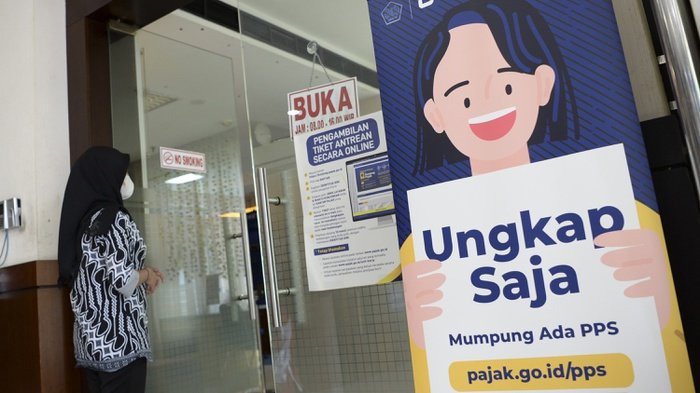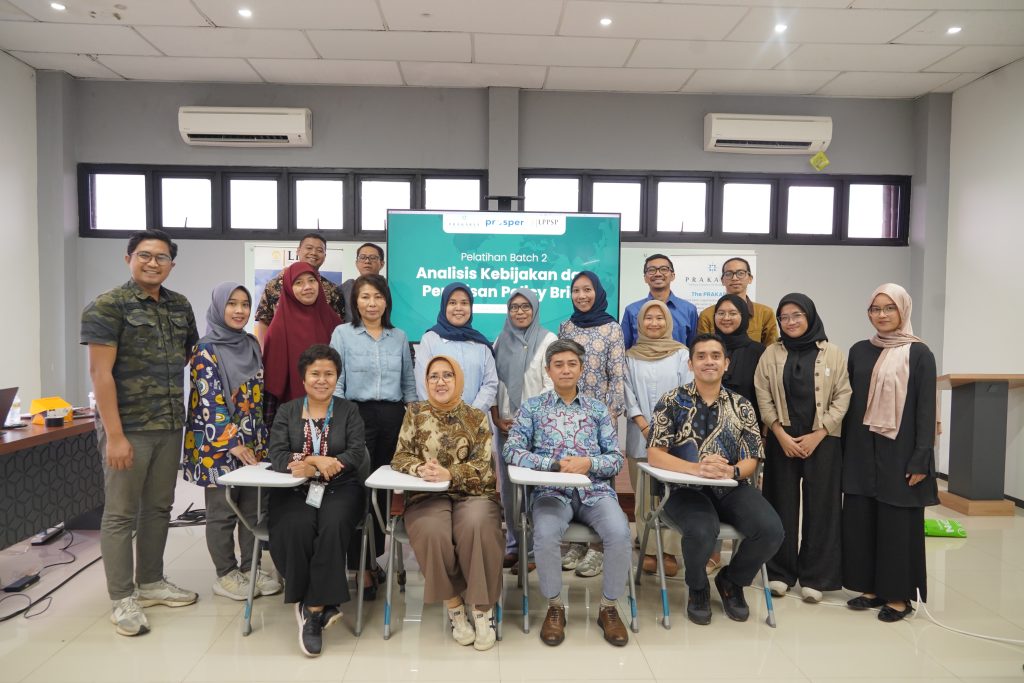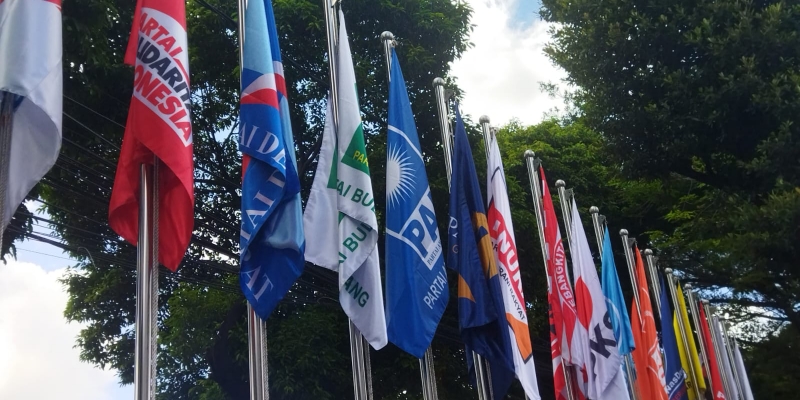
tirto.id – The research institute PRAKARSA In his view, the wealth tax can be an alternative fiscal policy that has the opportunity to be implemented in Indonesia to increase the potential for state revenue. This is in line with the results of the research entitled “Implementation of Wealth Tax in Indonesia: Potential and Opportunities” that they have conducted.
The Executive Director PRAKARSA, Ah Maftuchan said, Indonesia as a developing country is considered to be experiencing apprehensive fiscal performance, especially the declining economy due to the Covid19 pandemic. This is because in the last decade the ratio of tax revenue to Gross Domestic Product (GDP) or tax ratio Indonesia is still far from its potential.
In fact, said Maftuchan, in the last 5 years tax ratio It is difficult for Indonesia to reach 13 percent, even though many international institutions such as the International Monetary Fund (IMF), and the world financial consulting agency Deloitte predict the potential for tax ratio Indonesia as middle income country should be 17 percent.
"This means that our ability to collect taxes and make breakthroughs in the mobilization of domestic resources that we have potential has not been optimally exploited," said Machtuhan in a release received by Tirto, Friday (30/9/2022).
In addition, Maftuchan also explained that Indonesia's fiscal capacity is very limited to be able to recovery from the COVID-19 pandemic crisis and other potential crises such as food and energy.
“From there we saw that we could no longer business as usual on fiscal policy, we must make breakthroughs so that domestic resource mobilization what we take needs to be multi track, or need to reflect a comprehensive effort to the existing potential,” he said.
According to him, one of the potentials possessed to realize this is the super-rich group in Indonesia. However, Indonesia's condition is not considered unique because in various countries there is also a high increase in inequality.
Maftuchan added, even after the COVID-19 pandemic, the super-rich experienced a significant increase in wealth, while the poor were in a very worrisome condition.
“We are of the view that a wealth tax should be introduced as an alternative to fiscal policy in two ways. First, it can be an alternative to increase state revenue. Second, it can be a tool for the state to accelerate the distribution of wealth and resources while also increasing the state's ability to finance development," said Maftuchan.
Furthermore, he said that the wealth tax is one of the reflections of efforts for tax justice. "A concrete reflection that tax policy is closer to a sense of justice is when taxes are applied more progressively in this case, meaning that they apply a wealth tax for the super-rich," he said.
Researcher The PRAKARSA, Irvan Tengku Harja added, currently the government is still trying to explore new sources of tax revenue.
“The government can add wealth tax as a new type of tax in addition to the existing types of taxes. While it can stimulate state revenue, a wealth tax can also slow the pace of wealth inequality,” he said.
This is based on data on Indonesia's poverty rate as of March 2022 reaching 26,16 million. According to Irvan, this poverty rate is in fact difficult to eradicate, let alone added to by the pandemic crisis.
While most Indonesians and even the world are experiencing economic difficulties, Forbes' 100 richest people in Indonesia have actually experienced a significant increase in wealth.
"The face of inequality in Indonesia is that 1 percent of the richest people control 30 percent of the national wealth, while the 50 poorest people only control 5 percent of the national wealth, and the remaining 49 percent is just distributed," he said.
For that, said Irvan, wealth tax should be considered as an alternative policy to overcome economic problems. He explained that a wealth tax would be levied on net worth, transfer of wealth, and wealth from appreciation resulting from capital gains owned by high net worth individual (HNWI) or super-rich people with a net worth of more than 1 million US dollars.
Furthermore, Irvan said, this research found at least 5 models for calculating wealth tax that could be applied. But of the 5 models, The PRAKARSA has chosen one of the possible models to be implemented in Indonesia.
The PRAKARSA offered a proposal for a wealth tax format in the form of imposing a wealth tax on HNWIs or super-rich people who have assets of more than IDR 144 billion per the last tax year. Tax objects include assets in the form of savings or demand deposits, time deposits, stocks, warrants, government securities, sukuk and precious metals. While those originating from the transfer of wealth in the form of inheritance, donations and grants.
The tax collection time is annual with a self-assessment reporting mechanism such as reporting annual notification letters (SPT) and needs to be verified by the Directorate General of Taxes (DGT).
"According to our estimates based on available data, if this wealth tax is implemented, there will be a total of 4.714 taxpayers. In addition, in order to make the implementation easier, it is also necessary to implement relaxation in the form of installments of 1 year of payment so as not to burden taxpayers, "said Irvan.
From this proposal, he said, the estimated wealth tax if applied could increase state revenue by Rp78,50 trillion.
"If we compare this with other types of tax receipts, the wealth tax could be greater than the PPh OP realized in December 2021, even greater than twice the tax amnesty, namely in 2016 and 2022 which generated 61 trillion rupiah," said Irvan.
It doesn't stop there, this research has also included opinions from members of Commission XI of the DPR RI. The results are quite positive, as many as 47 percent of parliamentarians agree with the implementation of the wealth tax. However, unlike the previous time, the approved collection period was only once in five years.
In addition, the results of this research also explain, basically wealth tax and zakat do not negate each other. Even wealth tax has a strong link with zakat, so that both can be institutionalized as a unified system of wealth redistribution.
Based on data from the National Amil Zakat Agency (BAZNAS), if it is calculated the potential for zakat receipts in Indonesia has a large enough value, but its realization is still not optimal. In 2020, the potential for zakat receipts reaches IDR 326,7 trillion, but the realization only reaches IDR 71,4 trillion or around 21,7 percent.
Meanwhile, Researcher The PRAKARSA others, Samira Hanim added, the suboptimal collection of zakat is caused by the habit of Muslim communities in Indonesia who distribute their zakat directly or indirectly through official amil zakat institutions.
"Most Muslim communities in Indonesia distribute their zakat directly to those in need around their place of residence, in their area of origin, or to institutions they already trust outside the official amil zakat institutions, so it is natural for the realization of zakat receipts to be low," he said.
In addition, the challenge of collecting zakat is also due to public distrust of charity institutions managed by the government and the level of public awareness to collect zakat at official institutions such as BAZNAS is still limited to obligations as employees in a company.
"The payment of zakat has not been in the form of personal awareness, plus in practice the payment of zakat that has been in effect so far is a minimum standard practice and not with a standard of virtue," said Samira.
source: Tirto.id



